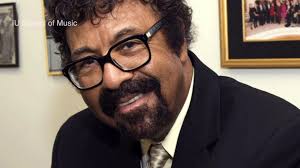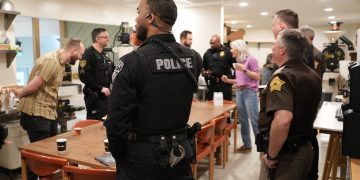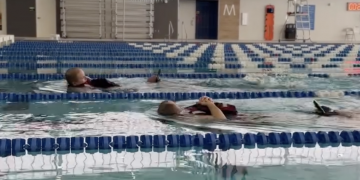BLOOMINGTON — He was a pioneer of jazz who built IU’s renowned jazz studies program from the ground up, while impacting thousands.
David Baker is often thought of as the “Godfather of Jazz Education.” For five decades he forged a long-lasting legacy in the halls of IU’s Jacobs School of Music.
Baker began his jazz career as prolific trombonist in his own right. Eventually he was forced to end his playing career following a car accident in 1953. Baker threw himself into education and began teaching at IU’s Jacobs School of Music in 1966. There he established the jazz studies program and turned IU into a globally recognized destination for jazz education.
“He was a bridge. He could be very academic, and he could be very street. He was like a chameleon depending on who he was with,” said Wayne Wallace, a professor of practice at the Jacobs School of Music.
Throughout his tenure Baker was credited with helping shape the lives of thousands of students. He was renowned for his unique ability to capture and translate the ever-elusive mastery of jazz.
“He was a student of the music like we all are. But he did it to a degree where he helped it evolve,” Wallace said.
Some of his Baker’s students who are now teachers at IU say they still pass on his lessons and legacy of jazz excellence
“I would say almost every day that I teach there is something that comes up that I say that’s, either a direct quote from David Baker, or a paraphrase of what he taught me,” recalled Jacobs School of Music professor Luke Gillespie.
By the end of his career Baker produced more than 65 recordings, 70 books and 2,000 compositions. He was also on the receiving end of numerous awards including a Grammy, a Pulitzer Prize, the American Jazz Masters award from the National Endowment for the Arts and the Living Jazz Legend Award from the John F. Kennedy Center for the Performing Arts.
“His legacy is so far reaching–I don’t know anybody who was not touched by him,” Gillespie said.
Baker passed away in 2016. Those who knew and remember him say without him, the state of jazz education wouldn’t be the same.
“It just seemed like it was his destiny to be that person,” Wallace said.

















































































